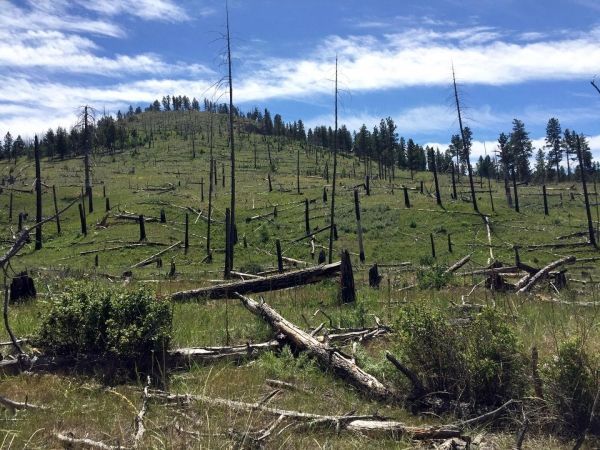New University of Montana research suggests climate change makes it increasingly difficult for tree seedlings to regenerate following wildfires in low-elevation forests, which could contribute to abrupt forest loss.
The study, “Wildfires and Climate Change Push Low-elevation Forests Across a Critical Climate Threshold for Tree Regeneration,” was published March 11 in the Proceedings of the National Academy of Sciences and is available online at http://bit.ly/2HeZc8t.
Kimberley Davis, a postdoctoral research associate in the W.A. Franke College of Forestry and Conservation at UM, and her co-authors examined the relationship between annual climate and post-fire regeneration of ponderosa pine and Douglas fir in low-elevation forests of western North America.
“Forests in the western U.S. are increasingly affected by both climate change and wildfires,” said Davis, the study’s lead author. “The ability of forests to recover following wildfire depends on annual climate conditions, because tree seedlings are particularly vulnerable to hot and dry weather. We wanted to identify the specific conditions necessary for post-fire tree regeneration to better understand how climate change has been affecting forests through time.”
Read more at The University of Montana
Image: Ponderosa pine and Douglas fir forest burned in the 1994 Idaho City Complex Fire on the Boise National Forest in Idaho, and little regeneration has occurred since. (Credit: Courtesy of Kimberley Davis)


